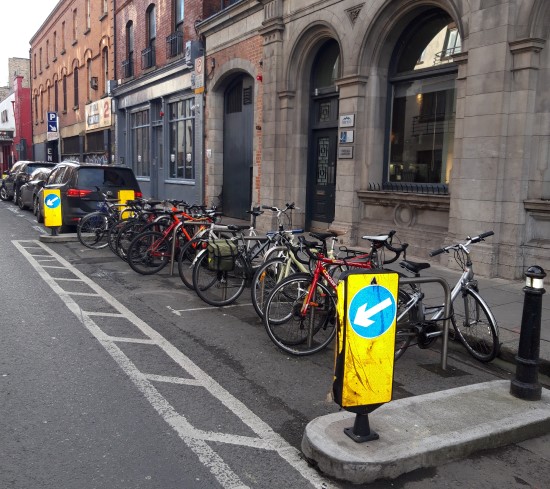
Cycle Parking in Dublin City
Author: Dublin City Council
Providing sufficient cycle parking for an ever growing population of cyclists is a challenge for any city, but is particularly so for Dublin City with its narrow city centre streets and medieval layout. Dublin City Council (DCC) tackles this challenge with a range of measures. Planning guidelines have significantly reduced the number of car parking spaces available in new office developments and encouraged the provision of cycle parking for employees. An on-going programme for installing on-street cycle parking has been escalated in recent years with significant results achieved in 2018. Publically available high density cycle parking has also been increased during 2018 with an upgrading of our Drury Street facility. Complimentary programmes like our abandoned bike policy have added to the number of cycle parking spaces available.
Planning Guidelines
Successive development plans for the city have sought to reduce the provision of car parking in new builds and increase the level of cycle parking. An example from recent development in our docklands area highlights the benefits. The total cycle parking provision in the six buildings shown in the drawing below (2,400) is more than twice the car parking provision (1,021). Repeated across the city this has had a dramatic effect on the provision of cycle parking and it is estimated that approximately 85% of the cycle parking required in the city centre is provided privately.
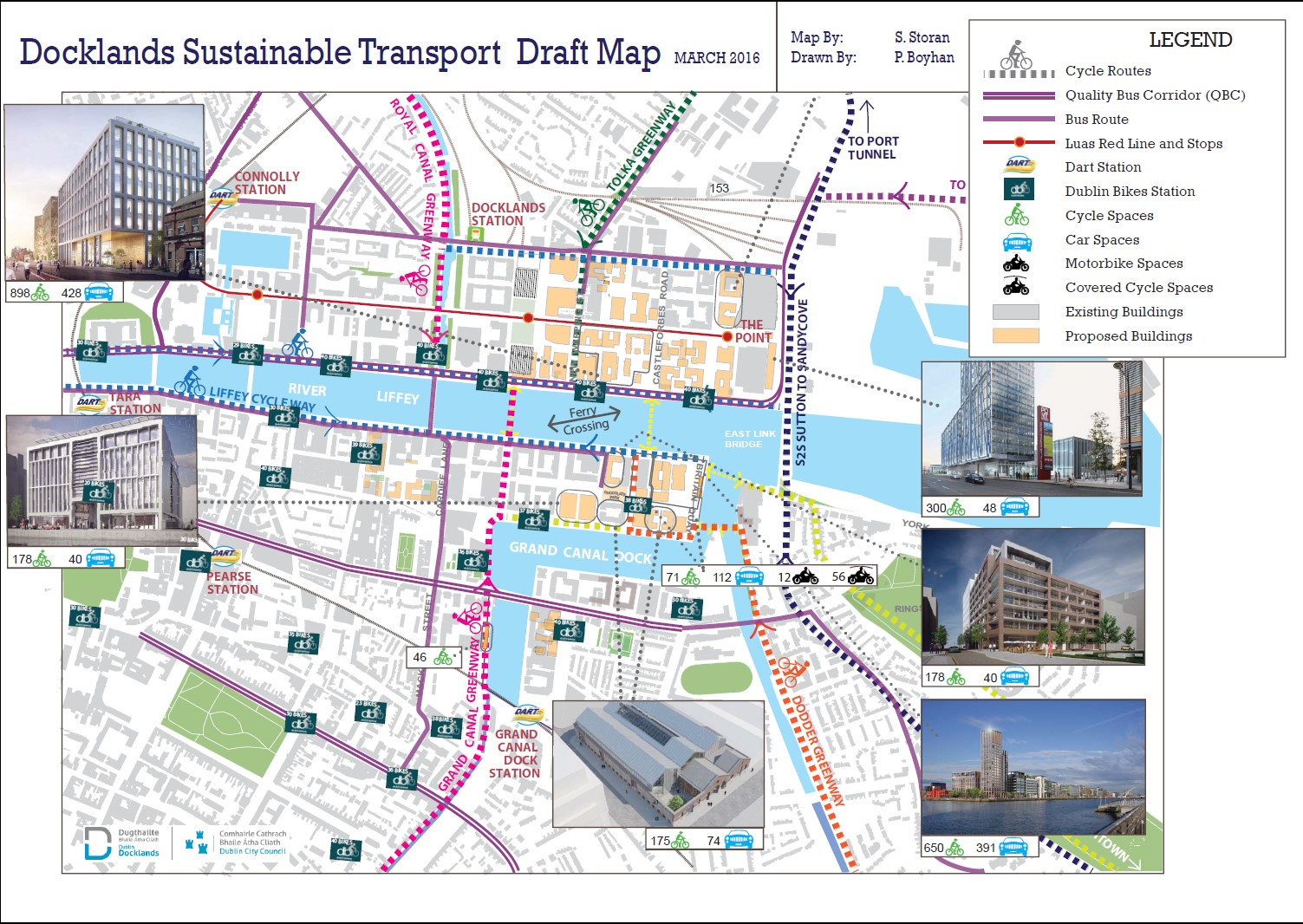
On- Street Cycle Parking
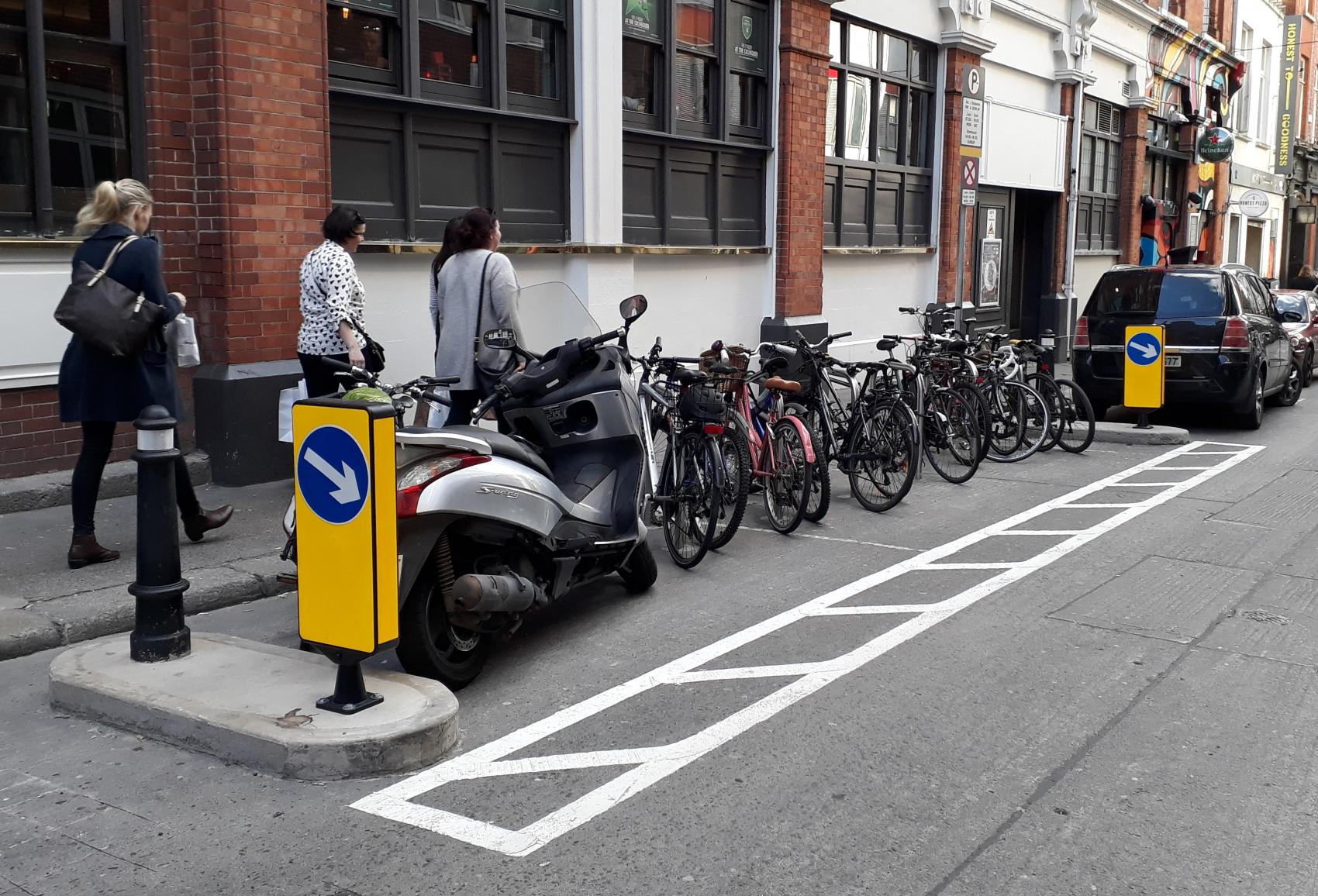
Since 2015 DCC has been operating an ongoing On-Street Cycle Parking Project funded with the support of the National Transport Authority, to provide safe and secure cycle parking. The numbers of cyclists in Dublin City has risen rapidly in recent years and additional cycling infrastructure is vital to ensure this upward trend, while promoting a healthy cycling culture.
Last year, DCC installed approximately 1,800 new bicycle parking spaces as part of the On-Street Cycle Parking Project, more than the previous 4 years combined. In order to introduce such large volumes of cycle parking a significant number of car parking spaces have been converted to bicycle parking in keeping with DCC's commitment to sustainable transport and City Development Plans.
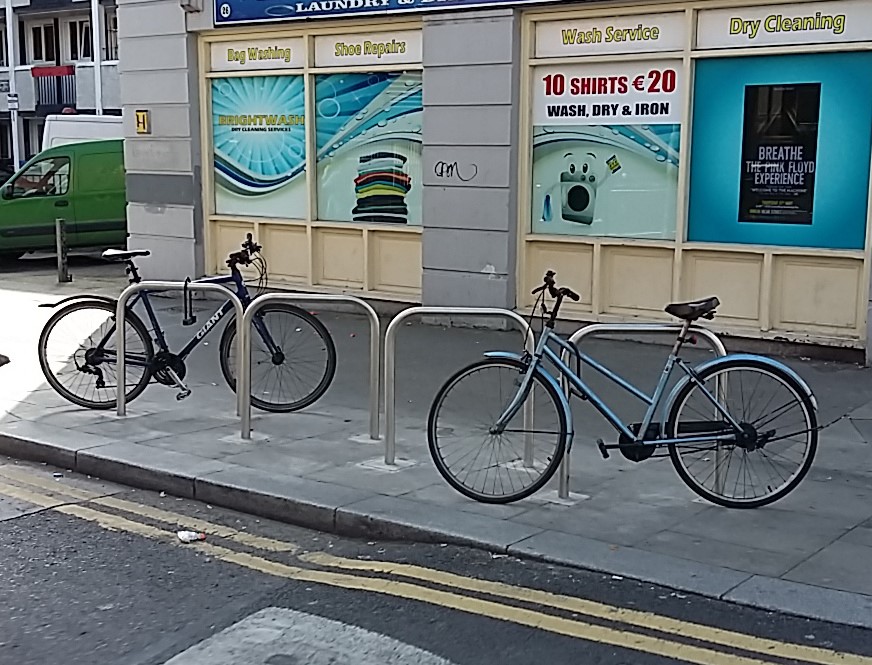
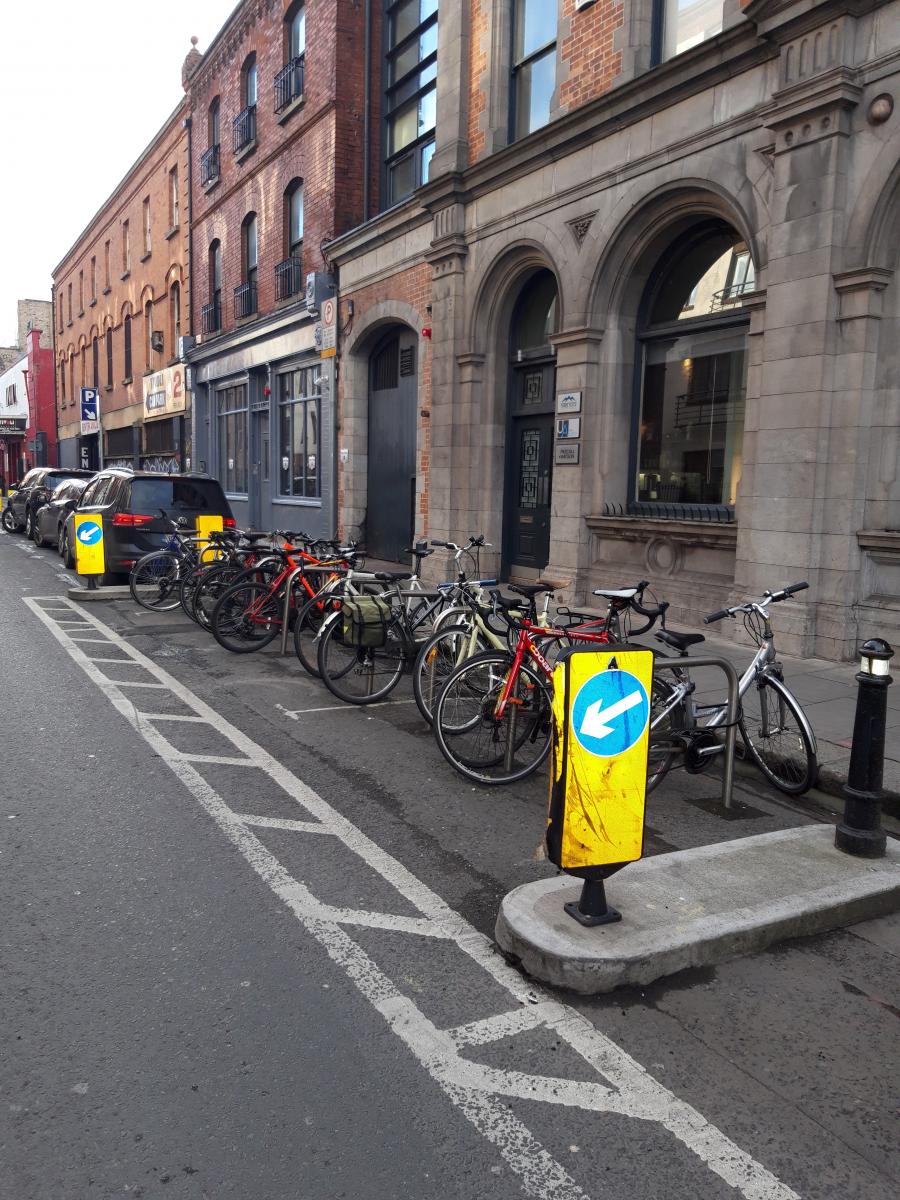
High Density Cycle Parking
DCC owns and operates a car park in Drury Street. During 2018 this facility was upgraded and expanded to provide over 300 bicycle parking spaces. The facility provides CCTV security cameras, a public bicycle maintenance area with basic tools, and parking spaces for cargo bicycles. DCC is looking at other facilities that are suitable for providing such parking and hope to develop more facilities to complement its existing infrastructure in the near future.
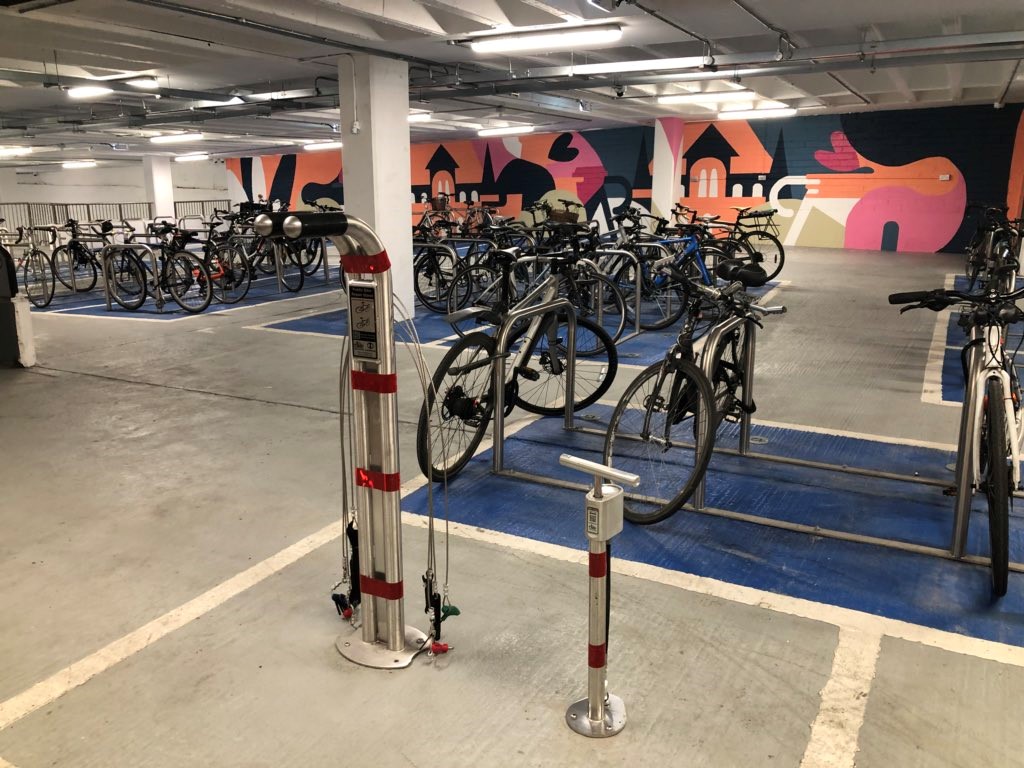
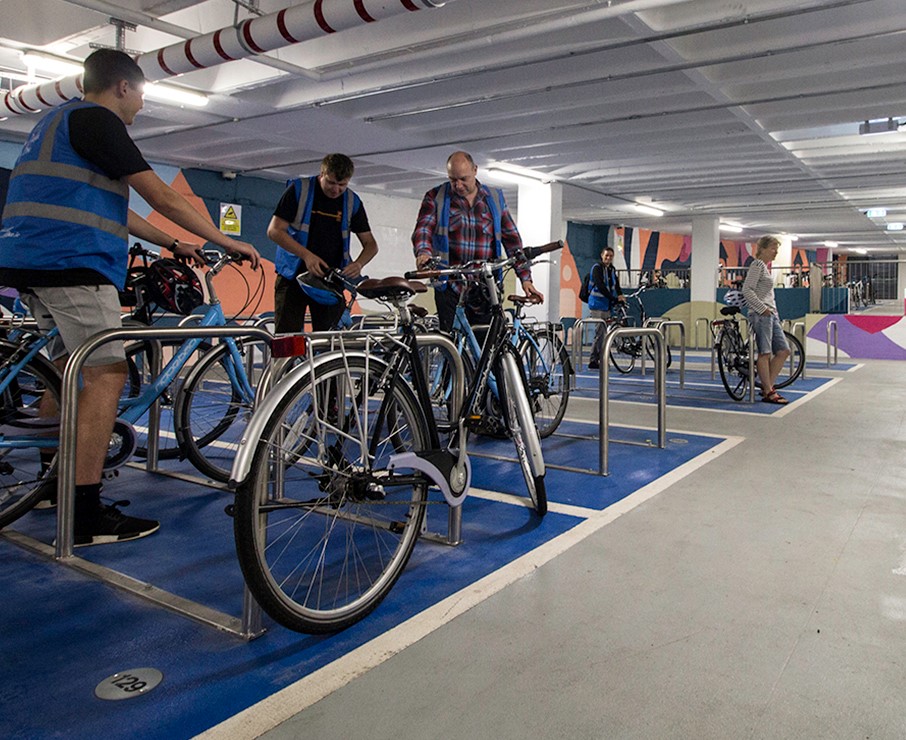
Abandoned Bike Policy
To gain the maximum benefit from the on-street cycle parking provided DCC operates an abandoned bike policy. Periodically Public Domain Enforcement Officers with the assistance of the Environment and Transportation Department, identify, tag and remove bicycles in disrepair from public places. This not only frees up stands for use by cyclists but also ensures footpaths are not needlessly cluttered by abandoned bikes.
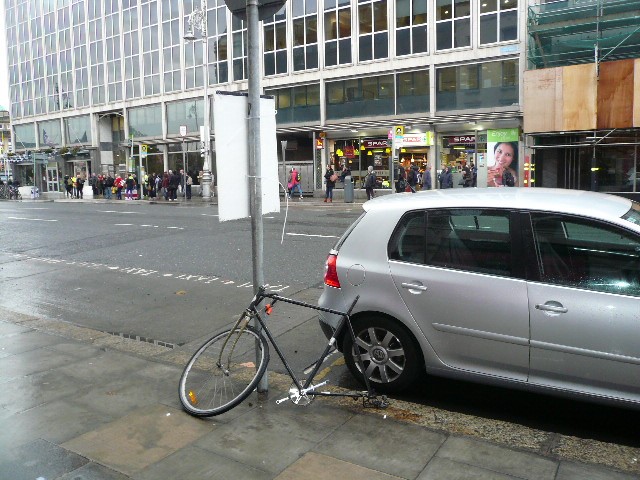

Challenges Ahead
Facilitating modal shift to more sustainable transport options is a vital element in DCC's traffic management and climate change strategies and last year a new station-less bike scheme was launched in Dublin, to compliment the already highly successful Just Eat Dublin Bike Scheme.
To avoid footpaths becoming cluttered and the dumping of bikes in places like parks and waterways, by-laws were introduced to regulate their operation. The bye-laws require that all bikes must be docked at a Sheffield Stand. One of the future challenges will be providing sufficient stands to allow the station-less bike schemes expand.
Although the available road-space is limited, DCC plans to install a further 2000 cycle parking spaces in 2019. A key to the success of Dockless bikes will be expanding beyond the core inner city to the suburbs, giving the opportunity for a new cohort of people to take up cycling. The adequate installation of cycle parking plays an important role in ensuring the scheme has every chance of success.
News category:
Network/Project Involved:
Contact the author
Recent news!
Upcoming events
Contact Us
Avenue des Arts, 7-8
Postal address: Rue de la Charité, 22
1210 Brussels, Belgium









